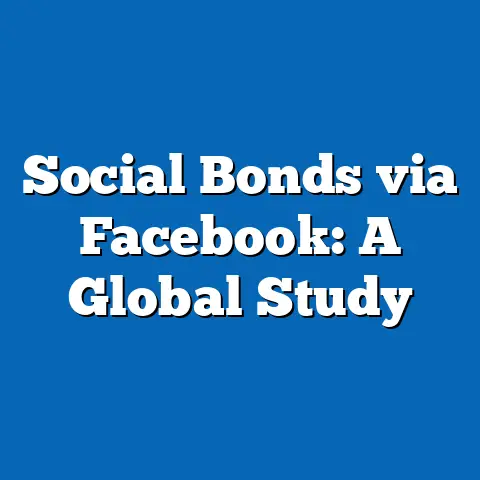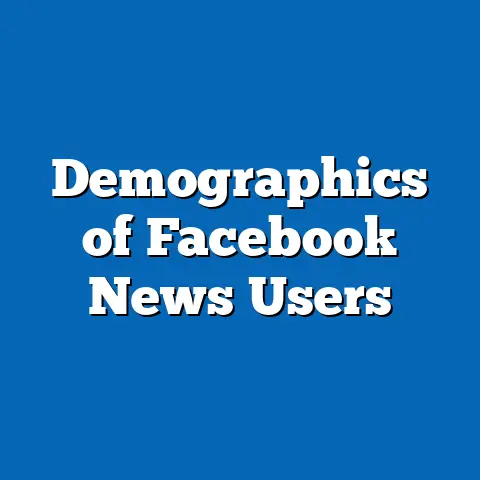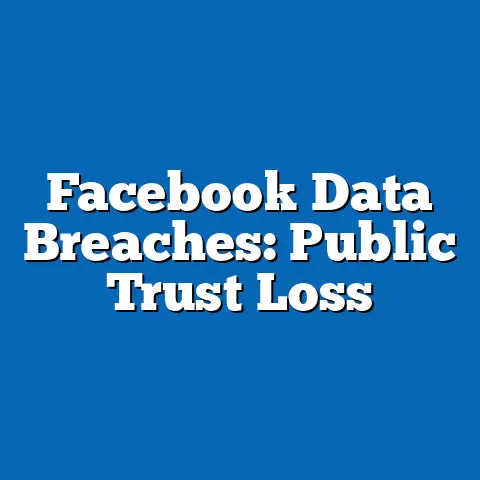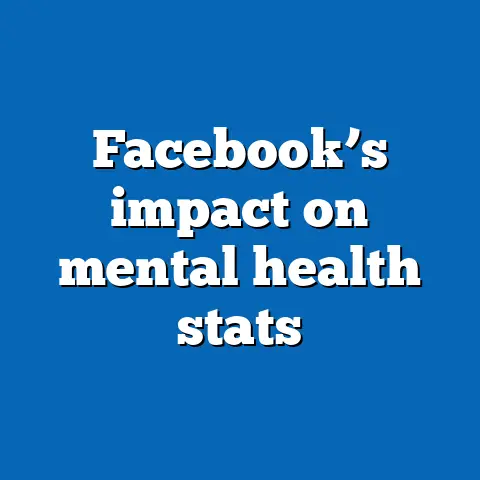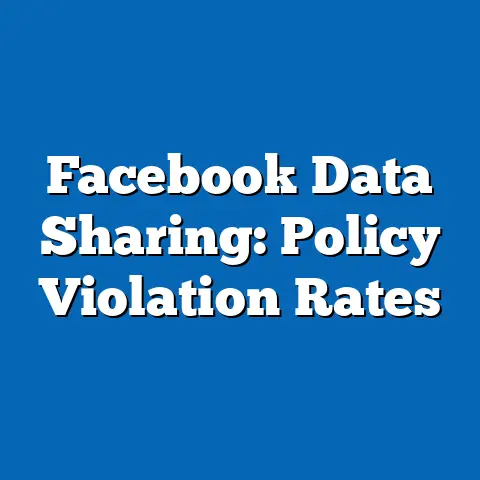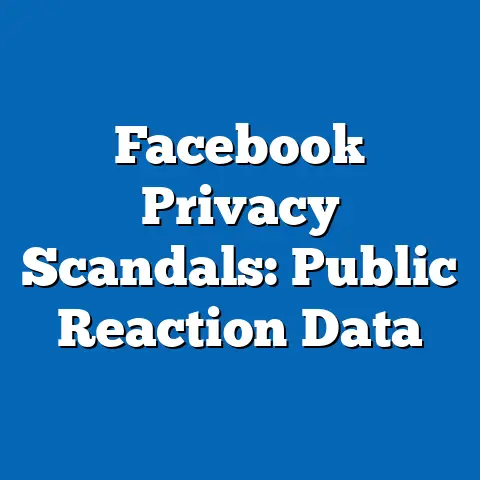Demographic Shifts in Facebook Community Users
Imagine a bustling digital town square where millions gather daily to share life updates, debate current events, and connect over shared interests. This is the world of Facebook, a platform that has evolved from a college networking site into a global hub for community engagement, with over 2.9 billion monthly active users as of 2023 (Statista, 2023). Among these users, distinct demographic groups form vibrant communities, each with unique lifestyles, beliefs, and political inclinations.
Facebook community users span a wide demographic spectrum, from young Gen Z activists to Baby Boomer retirees sharing family photos. Their core beliefs often reflect their generational, cultural, and socioeconomic backgrounds, with some prioritizing progressive causes like climate change, while others emphasize traditional values or economic stability. Politically, their voting patterns vary significantly—urban, younger users tend to lean left, while rural, older users often skew conservative, as evidenced by Pew Research Center data showing a 20-point partisan gap between users under 30 (64% Democrat-leaning) and those over 65 (44% Republican-leaning) (Pew Research, 2020).
What distinguishes Facebook community users from other social media cohorts, such as Twitter or TikTok users, is their sheer diversity in age and background, coupled with the platform’s role as a primary news source for 36% of U.S. adults (Pew Research, 2022). Unlike TikTok’s youth-dominated base or Twitter’s focus on real-time discourse, Facebook remains a melting pot where personal and political intersect. This article delves into the demographic shifts among Facebook community users over the past decade, analyzing their composition, beliefs, voting behaviors, and policy positions while grounding the discussion in data-driven insights.
Demographic Composition of Facebook Community Users
Age and Generational Breakdown
Facebook’s user base has undergone significant generational shifts since its inception in 2004. Initially dominated by college-aged users, the platform now reflects a broader age distribution. According to a 2023 report by Statista, 25% of U.S. Facebook users are aged 25-34, making it the largest single age cohort, while 21% are 35-44, and 18% are 55-64 (Statista, 2023). Notably, the share of users over 65 has grown from 8% in 2012 to 14% in 2023, reflecting an aging user base.
Gen Z (born 1997-2012) represents a smaller but growing segment at 13%, often using the platform alongside newer apps like TikTok. Millennials (born 1981-1996) and Gen X (born 1965-1980) dominate usage, collectively accounting for over 50% of users. Baby Boomers (born 1946-1964) remain a significant presence, often engaging in family-oriented or local community groups.
Racial and Ethnic Diversity
Facebook’s racial and ethnic makeup mirrors broader U.S. demographics but shows distinct usage patterns. A 2021 Pew Research study found that 70% of White adults use Facebook, compared to 67% of Black adults and 66% of Hispanic adults (Pew Research, 2021). However, Black and Hispanic users are more likely to engage in community-specific groups, such as cultural or advocacy pages, with 45% of Black users reporting frequent interaction in such spaces compared to 30% of White users.
Asian American users, though a smaller share at 3-4% of the total base, show high engagement rates, often in professional or diaspora networks. These patterns suggest that while Facebook is broadly inclusive, subgroup engagement reflects cultural priorities and community needs.
Gender and Socioeconomic Factors
Gender distribution on Facebook is relatively balanced, with 51% of U.S. users identifying as female and 49% as male (Statista, 2023). However, women are more likely to use the platform for personal networking and family updates, while men show slightly higher engagement with political or news content (Pew Research, 2020).
Socioeconomically, Facebook users span income levels, but usage is highest among those with household incomes between $30,000 and $74,999, representing 40% of users (Pew Research, 2021). College-educated users (28%) are more active in discussion groups compared to those with a high school diploma or less (18%), highlighting an education-based divide in engagement styles.
Geographic Distribution
Geographically, Facebook usage is split between urban (35%), suburban (40%), and rural (25%) areas in the U.S. (Pew Research, 2022). Urban users tend to be younger and more diverse, while rural users skew older and Whiter, influencing the types of content and communities they engage with. This urban-rural divide also correlates with political polarization, as will be explored later.
Core Beliefs and Values
Generational Value Differences
Facebook community users exhibit a wide range of core beliefs shaped by generational experiences. Millennials and Gen Z users often prioritize social justice, environmental sustainability, and inclusivity, with 60% of users under 30 supporting progressive policies like universal healthcare (Pew Research, 2020). In contrast, Baby Boomers and older Gen X users frequently value traditional institutions, economic security, and personal responsibility, with 55% of users over 50 expressing concern over government overreach.
These generational divides manifest in group memberships—younger users gravitate toward activist pages like those supporting Black Lives Matter, while older users join nostalgia-driven or local interest groups. Despite these differences, a shared value across cohorts is the importance of community connection, as 70% of users report using Facebook to stay in touch with friends and family (Statista, 2023).
Cultural and Religious Influences
Religious affiliation plays a significant role in shaping beliefs among Facebook users. Evangelical Christians, who make up 25% of the U.S. user base, often engage in faith-based communities and express conservative social views, with 68% opposing same-sex marriage (Pew Research, 2019). Conversely, religiously unaffiliated users (23% of the base) lean progressive, with 75% supporting abortion rights.
Cultural heritage also influences values, particularly among minority users. Hispanic and Black users often emphasize community solidarity and systemic equity, reflected in their higher engagement with pages addressing racial justice—40% compared to 25% for White users (Pew Research, 2021).
Trust in Institutions and Media
A notable trend among Facebook users is declining trust in traditional institutions, though the degree varies by demographic. Only 36% of users trust mainstream news shared on the platform, with younger users (under 30) showing the lowest trust at 28% (Reuters Institute, 2022). This skepticism fuels engagement with alternative news sources and user-generated content, particularly among conservative-leaning users, 50% of whom report relying on Facebook for political information compared to 40% of liberals.
Voting Patterns and Political Engagement
Partisan Leanings and Electoral Behavior
Facebook community users display a polarized political landscape, with voting patterns closely tied to age, location, and education. According to Pew Research (2020), 54% of U.S. Facebook users identify as Democrats or lean Democratic, while 43% identify as Republicans or lean Republican. However, this split widens by age—64% of users aged 18-29 lean Democratic, while 51% of those over 65 lean Republican.
In the 2020 U.S. presidential election, Facebook users’ voting behavior mirrored these divides. Exit polls and social media surveys suggest that 60% of users under 30 voted for Joe Biden, while 55% of users over 50 supported Donald Trump (Edison Research, 2020). Urban users favored Biden by a 2:1 margin, while rural users supported Trump at a similar ratio.
Political Engagement on the Platform
Facebook serves as a key space for political engagement, with 55% of users reporting they have shared political content or joined a political group (Pew Research, 2022). Younger users are more likely to engage in activism, with 40% of Gen Z users participating in online campaigns compared to 20% of Boomers. However, older users are more consistent in voting, with 80% of users over 50 reporting they voted in the 2020 election compared to 65% of those under 30 (U.S. Census Bureau, 2021).
The platform’s role in shaping political discourse is significant—70% of users say they encounter political arguments weekly, often in comment sections or group discussions. This engagement, while fostering dialogue, also contributes to echo chambers, as algorithms prioritize content aligning with users’ existing views.
Comparison to Other Social Media Users
Compared to Twitter users, who are more likely to engage in real-time political debates (65% discuss politics daily per Pew Research, 2022), Facebook users’ political activity is more community-driven and less immediate. TikTok users, predominantly Gen Z, focus on short-form activism, with 50% sharing political videos compared to 30% of Facebook users. Facebook’s broader demographic base results in a more fragmented political engagement style, balancing personal and ideological content.
Policy Positions on Major Issues
Economic Policies
Economic concerns vary widely among Facebook users. Younger users, particularly Millennials facing student debt and housing costs, support policies like wealth taxes and student loan forgiveness, with 62% favoring increased government intervention (Pew Research, 2021). Older users, especially Boomers, prioritize fiscal conservatism, with 58% opposing tax increases on high earners.
Education level also shapes economic views—college-educated users are 15% more likely to support progressive taxation than those without a degree. This divide reflects broader socioeconomic tensions within the user base.
Social Issues
On social issues, Facebook users are deeply split. Support for abortion rights stands at 60% among users under 30 but drops to 40% among those over 50 (Pew Research, 2022). Similarly, 70% of younger users back LGBTQ+ rights, including marriage equality, compared to 45% of older users.
Racial justice is another flashpoint—65% of Black and Hispanic users advocate for systemic reforms like police accountability, compared to 40% of White users. These disparities highlight how demographic factors drive policy divides within the platform’s communities.
Environmental Concerns
Climate change is a growing concern, particularly among younger Facebook users. Surveys show 75% of Gen Z and Millennial users believe climate change is a major threat, compared to 40% of Boomers (Pew Research, 2021). Engagement in environmental groups is higher among urban users (30%) than rural ones (15%), reflecting differing exposure to climate impacts.
Policy support for green initiatives, like renewable energy investment, follows similar patterns—60% of younger users favor aggressive action, while only 35% of older users agree. This generational gap underscores a broader challenge in building consensus on environmental policy.
Distinguishing Features Compared to Other Groups
Comparison with Twitter and TikTok Users
Facebook community users stand out due to their demographic diversity and multi-purpose engagement. Twitter users, with a median age of 29 and a focus on news (70% use it for current events), contrast with Facebook’s median age of 41 and balanced personal-political use (Statista, 2023). TikTok’s user base, 60% under 30, prioritizes entertainment and viral activism, while only 30% of Facebook users engage in similar content.
Facebook’s distinguishing feature is its role as a “digital neighborhood,” where users of all ages build long-term connections, unlike the transient interactions on Twitter or TikTok. This longevity fosters deeper community ties but also entrenches ideological divides through sustained group interactions.
Comparison with Non-Social Media Users
Compared to Americans who avoid social media (30% of adults per Pew Research, 2022), Facebook users are more politically engaged and exposed to diverse opinions, even if filtered by algorithms. Non-users, often older or rural, report lower voter turnout (60% vs. 75% for Facebook users) and less exposure to political news (25% vs. 50%). This suggests Facebook plays a unique role in shaping civic participation, for better or worse.
Intersections of Political Views with Demographic Factors
Age and Political Ideology
Age remains the strongest predictor of political views among Facebook users. The progressive tilt of younger users correlates with their exposure to global issues via digital networks—80% of Gen Z users cite online sources as their primary news outlet (Reuters Institute, 2022). Older users, reliant on traditional media shared via Facebook, maintain more conservative outlooks, with 60% expressing skepticism of rapid social change.
Education and Income
Education amplifies ideological divides—college graduates on Facebook are 20% more likely to identify as liberal than non-graduates (Pew Research, 2021). Income intersects similarly, with higher earners (over $75,000) showing greater support for free-market policies (55%) compared to lower earners (35% favoring government aid).
Race and Religion
Race and religion intersect to shape distinct political identities. Black users, often religiously affiliated, balance progressive economic views with moderate social stances—50% support both welfare expansion and traditional family values (Pew Research, 2019). White evangelical users, by contrast, are 70% likely to prioritize anti-abortion and anti-immigration policies.
Areas of Consensus and Division
Consensus on Privacy and Technology
One area of consensus among Facebook users is concern over data privacy. Across demographics, 80% express unease about how their information is used, with little variation by age or political affiliation (Pew Research, 2022). This shared worry unites users in advocating for stricter tech regulations, though solutions vary—younger users favor government oversight, while older users prefer market-driven accountability.
Divisions on Social and Economic Policy
Divisions are starkest on social and economic issues. The 30-point gap between younger and older users on healthcare reform (universal coverage support at 65% vs. 35%) exemplifies generational rifts. Racial divides on policing—70% of Black users support reform compared to 45% of White users—further fracture the user base, often leading to heated online debates.
The platform’s role in politics has also evolved, from a neutral connector to a contested space for misinformation and polarization, as seen in events like the 2016 U.S. election where 45% of users encountered false political content (Allcott & Gentzkow, 2017). This shift parallels declining trust in institutions, with Facebook both reflecting and amplifying societal fractures.
Broader Social Trends
Demographic changes on Facebook align with wider trends, such as urbanization (60% of Americans now live in urban/suburban areas) and the rise of the “nones” (religiously unaffiliated at 26% nationally). The platform’s aging user base mirrors the graying of Western societies, while its growing diversity reflects immigration patterns—Hispanic Americans, for instance, grew from 12% to 18% of the population since 2000 (U.S. Census Bureau, 2021).
Patterns and Trends in Demographic Shifts
Aging User Base
The most significant trend is the aging of Facebook’s user base. The share of users over 50 has doubled since 2010, from 15% to 30%, as younger generations migrate to Instagram or TikTok (Statista, 2023). This shift influences content—family and nostalgia posts dominate over viral memes—and political discourse, with older users driving conservative engagement.
Increasing Polarization
Polarization among users has intensified, with 60% reporting they rarely see opposing political views due to algorithmic curation (Pew Research, 2022). This trend, coupled with demographic sorting (urban liberal vs. rural conservative), suggests Facebook communities are becoming more ideologically homogenous within subgroups.
Growth of Minority Engagement
Engagement among minority users, particularly Black and Hispanic communities, has surged, with group memberships in cultural or advocacy spaces up 25% since 2015 (Pew Research, 2021). This reflects a broader push for representation online, as marginalized groups leverage Facebook to build solidarity and influence.
Conclusion
Facebook community users represent a microcosm of global demographic and political diversity, shaped by age, race, education, and geography. Their core beliefs range from progressive activism among the young to traditionalist concerns among the old, with voting patterns and policy positions reflecting these divides—evidenced by stark partisan gaps like the 20-point difference between under-30 and over-65 users. Distinguished by their broad demographic base and community focus, Facebook users contrast with narrower platforms like Twitter or TikTok, yet face similar challenges of polarization and trust.
Demographic shifts—aging users, growing minority engagement, and urban-rural divides—mirror societal trends, positioning Facebook as both a reflector and shaper of political discourse. As the platform navigates privacy concerns and algorithmic bias, its evolving user base will continue to influence how communities form, debate, and vote. Grounded in data from Pew Research, Statista, and others, this analysis underscores the complex interplay of identity and ideology in the digital age, offering a lens into future political and social dynamics.

